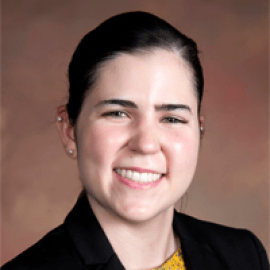
Sexual Assault Activist Chanel Miller is Keeping #MeToo Alive
By Mikayla Pevac, M.A.
This October will mark three years since #MeToo rocked America. Beyond exposing such predators as Harvey Weinstein and Matt Lauer, the movement has shone light on how America’s patriarchal societal norms have systematically protected perpetrators of sexual assault and sexual harassment. Many repercussions of #MeToo continue to be felt in 2020: Harvey Weinstein was found guilty of two felony sex crimes, major motion pictures such as Bombshell are exposing sexual assault and harassment in mega-corporations including Fox News, and, most significantly, sexual assault activists have become household names.
In September 2019, Chanel Miller publicly released her memoir, Know My Name, introducing her version of events surrounding her sexual assault by Brock Turner on Stanford’s campus in 2015. Since then, she has created an Instagram account that was originally designed to promote her book. However, in her words, the online account has turned into something more: “I’ve been so excited about showing my doodles on my Instagram that I’ve forgotten to promote my book on here.” The doodles Miller is referring to are hand-drawn, arguably rudimentary drawings that are her way of sharing her journey with her followers and the world.
Miller and other activists are taking advantage of the relatively safe spaces provided by the social media sphere that are being used by feminists to join together into an online network. While the internet does have its darker aspects (i.e. cyberbullying and trolling), the facilitation of connection among individuals is still possible if unwelcome parties are filtered out. A sense of community is established through the mutual shared experiences of sexism or through the mutual belief in feminist ideas. Modern feminists are bridging the distance between their physical proximity to bond feminists, sexual assault and harassment survivors, and allies together in the pursuit of social change.
While Miller’s doodles may seem rudimentary or simplistic, the motive behind them is clear: Miller wants to validate others’ experiences with mental health issues by offering up her own experiences, as if to say, “It happens to many of us.” By sharing the grittier aspects of her journey, Miller is building an account where those struggling with similar issues can “gather” to gain comfort in the fact that another sexual assault survivor has had experienced similar ups and downs. Miller’s 91,900 followers and visitors to her page are allowed a behind-the-scenes look at Miller’s journey, including insights that were not necessarily highlighted in the polished, final manuscript of Know My Name. Using Instagram, Miller builds upon the foundation she laid when she shared some of her daily struggles and then offers some inspirational advice for those who see themselves within her doodles.
Activists have built a network of followers through their online efforts, using their fame or real-world notoriety to then build awareness for the issues they deemed most important using social media. Social media has become an online extension of real-world activism, thereby ensuring that sexual assault activism remains relevant three years after the launch of the #MeToo movement. The connections reinforced and created on social media allow activists to continue their work via an easy and free online service. The feminist movement is expanding its reach and exponentially increasing awareness of issues such as sexual assault via activists who are posting intermittently on their social media platforms, thereby amplifying their messages and adding to the overall conversation.
Miller’s usage of Instagram is an example of how sexual assault activists are taking advantage of internet tools to connect with the online feminist community and support followers. Online networks provide relatively safe spaces for feminists, activists, and individuals to converse, share ideas, and support one another. Social media has and will continue to expand the realm of human connections virtually and will continue the evolution of social capital into the modern age.
To see all of Miller’s doodles, visit her Instagram: @chanelmillerknowmyname or her website: www.chanelmiller.com.
Media Resource: Issue Experts
R. Clark-Parsons, University of Pennsylvania
Kaitlynn Mendes, University of Leicester.
Jessica Ringrose, University of Central London
Jessalynn Keller, University of Calgary
References
Anderson, M., & Toor, S. (2018, October 11). How social media users have discussed sexual harassment since #MeToo went viral. Fact Tank; Pew Research Center. https://www.pewresearch.org/fact-tank/2018/10/11/how-social-media-users-...
Clark-Parsons, R. (2018). Building a digital Girl Army: The cultivation of feminist safe spaces online. New Media & Society, 20(6), 2125–2144. https://doi.org/10.1177/1461444817731919
Grady, C. (2018, March 20). The waves of feminism, and why people keep fighting over them, explained. Vox. https://www.vox.com/2018/3/20/16955588/feminism-waves-explained-first-se...
Mendes, K., Ringrose, J., & Keller, J. (2019). Digital feminist activism: Girls and women fight back against rape culture. Oxford University Press.
Miller, C. [@chanelmillerknowmyname]. (n.d.). Posts [Instagram profile]. Retrieved April 2, 2020, from https://www.instagram.com/chanelmillerknowmyname/
Photo credit: This image, released by Viking Books, features Chanel Miller in front of a wall adorned with some of her doodles. (Mariah Tiffany/Viking via AP)


